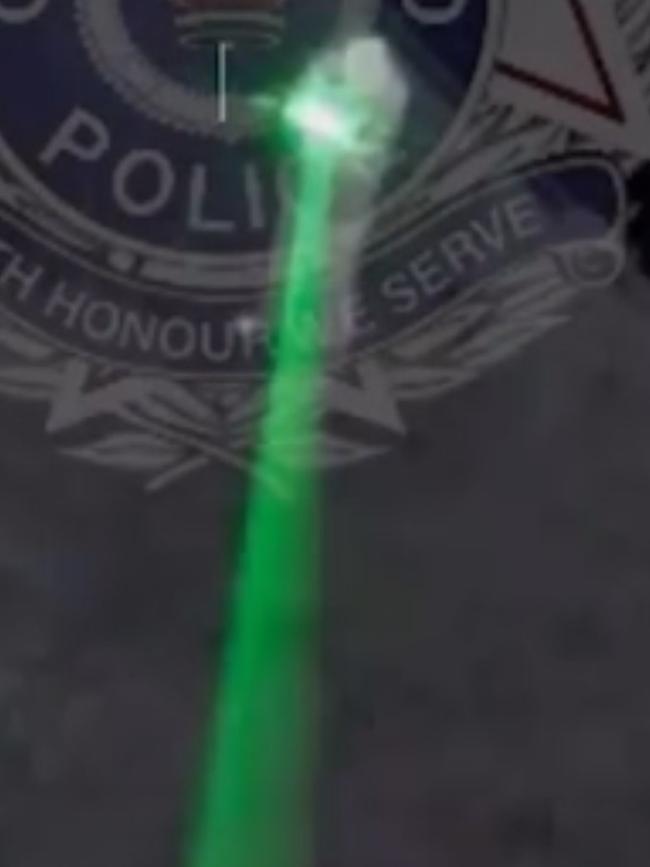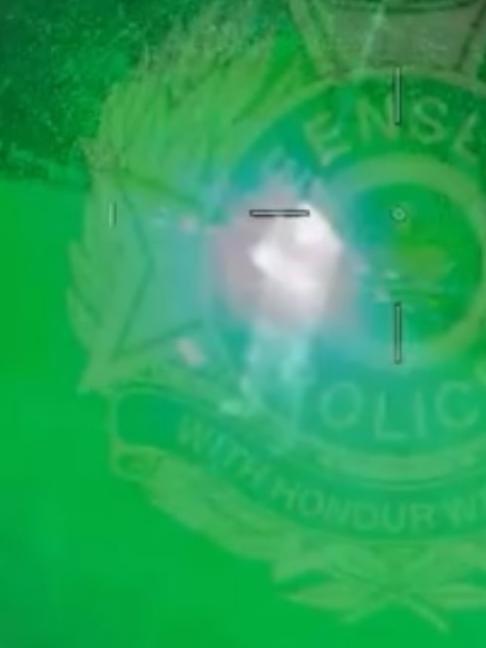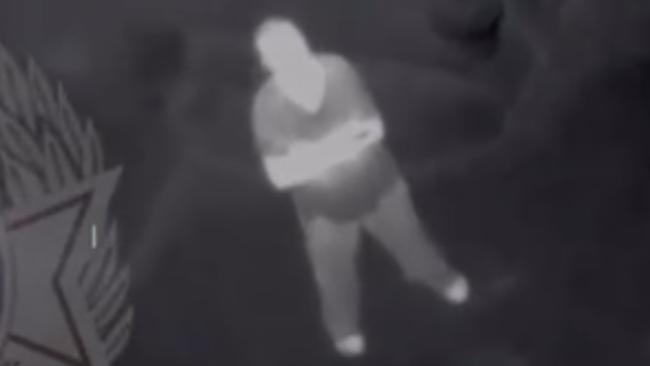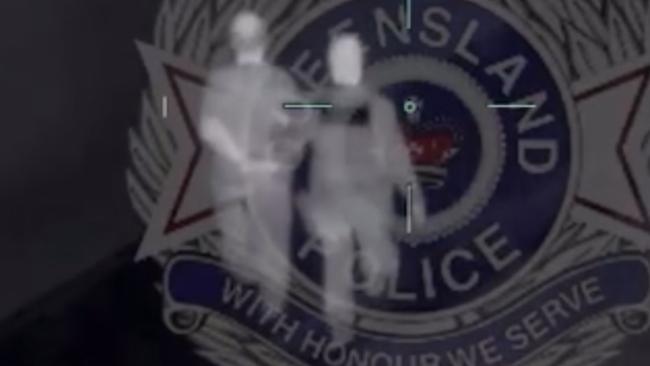James Hamilton Henry, 73, sentenced over pointing laser at police helicopter
A Gold Coast war veteran has offered up a confronting excuse for why he pointed a laser at a police helicopter, temporarily blinding the pilot and crew. Read what he said.
Police & Courts
Don't miss out on the headlines from Police & Courts. Followed categories will be added to My News.
A Gold Coast war veteran says he was frustrated by a police helicopter hovering near his home when he shone a laser at the aircraft temporarily blinding the crew on board.
Officers were conducting patrols over Labrador in the POLAIR helicopter about 10.30pm on September 29 last year when James Hamilton Henry pointed the powerful laser at police from his home.
“The occupants within the helicopter including the pilot were suddenly blinded by a bright green flash within the cockpit,” Sergeant Blair Casey told Southport Magistrates Court on Monday where Henry plead guilty to the dangerous offending.
“It was recognised immediately as a laser strike. The strike caused immediate temporary blindness and subsequent impaired vision.”


The court was told the camera on-board the aircraft recorded the strike and was used to track the origin of the laser beam – in the footage Henry can be seen waving the laser in the air near the aircraft before standing and staring.
About an hour after the incident – police arrived at Henry’s address where he was arrested and charged with possessing the laser and threatening the safety of the aircraft and people on board.
“The defendant (Henry) admitted to police that he had shone the laser at the aircraft because it was disturbing his sleep and he was always sick of having to listen to it buzzing around, ” Sgt Casey said.
Henry’s solicitor Billy Gee said the 73-year-old war veteran was suffering from undiagnosed PTSD at the time of the offending which stemmed from his service with the British army. He was present during the Bloody Sunday conflict in Northern Island on January 30, 1972 where British paratroopers opened fire on civil rights supporters, killing more than a dozen unarmed civilians and injuring countless others.

“He saw a lot of children that had been killed, that has left a longstanding impression on him,” Mr Gee told the court.
“It was after that incident that he left the army feeling disillusioned with what he had been doing.”
On the night of the laser strike incident, Henry’s struggles, health battles and issues within his family at the time had “compounded”, according to Mr Gee, which prompted the veteran to begin mental health treatment upon his arrest.
“He was quite restless, he wasn’t able to sleep, he heard this helicopter going over and it was quite loud. He made, what he acknowledges as, a stupid reckless decision,” Mr Gee said.
“It was never his intention to cause them (police) any harm. He is very regretful for the decision.
“He is very angry with himself to put himself in this position and he is upset that he could have potentially caused harm to other people.”

In sentencing, Magistrate Nerida Wilson said the offending carries “serious consequences” which is reflected in the maximum penalty of a jail term of up to two years, however her honour accepted Henry had shown genuine remorse.
“You have written a heartfelt apology to the court. You set out in some detail, and specifically address each of the pilots involved and express your sincere remorse,” Magistrate Wilson said.
“You come before the court with not so much as a parking ticket. No criminal history, no traffic history.
“I have no doubt, and accept, that you have been witness to some of the worst civilian conflicts that any one of us have seen in our lifetime.”
Henry was ordered to pay a $500 fine and enter into a $1000 recognisance to be of good behaviour for 12 months. No convictions were recorded.





